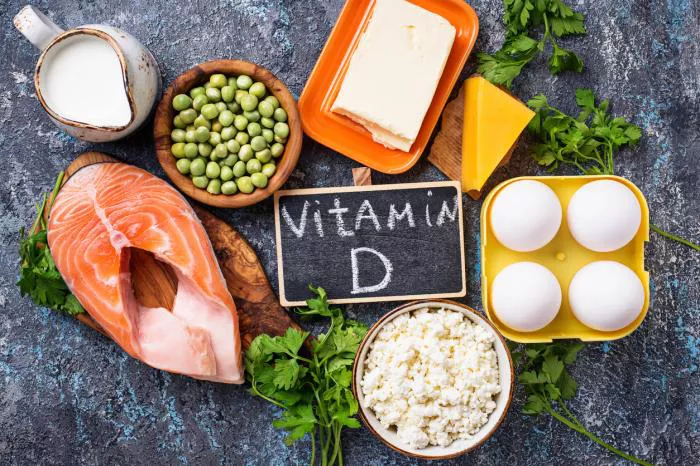Jaundice is a common condition in newborns. It occurs when there is a high level of bilirubin in the blood. Bilirubin is a yellow substance produced when the body breaks down old red blood cells. While jaundice is usually not serious, many parents seek ways to help their babies. One question that often arises is whether vitamin D can help with jaundice.
Understanding Jaundice
Jaundice is characterized by yellowing of the skin and the whites of the eyes. It is often most noticeable on the second or third day after birth. In newborns, jaundice can be caused by several factors. These include:
Physiological jaundice: This is the most common type. It usually appears in healthy babies due to the immaturity of their liver.
Breastfeeding jaundice: This can occur if a breastfeeding baby is not getting enough milk. Dehydration can lead to higher bilirubin levels.
Pathological jaundice: This is less common and may indicate an underlying health issue, such as an infection or blood disorder.
Most cases of jaundice resolve without treatment. However, monitoring is important to ensure bilirubin levels do not rise too high. High levels can lead to serious complications.
The Role of Vitamin D
Vitamin D is an essential nutrient for overall health. It plays a critical role in calcium absorption and bone health. It also supports the immune system. Newborns can get vitamin D through breast milk, fortified formula, or sunlight exposure.
The body produces vitamin D when the skin is exposed to sunlight. However, infants have sensitive skin and should not be exposed to direct sunlight for extended periods. For this reason, many healthcare providers recommend vitamin D supplements for breastfeeding infants.
Vitamin D and Jaundice: The Connection
There is some research that suggests a potential link between vitamin D levels and jaundice. Here are a few key points:
1. Vitamin D Deficiency
Some studies indicate that low levels of vitamin D may contribute to the severity of jaundice in newborns. This is particularly relevant in populations where vitamin D deficiency is common. Babies born to mothers with low vitamin D levels may also have lower levels themselves.
2. The Liver’s Role
The liver is crucial for processing bilirubin. Vitamin D may support liver function, which could help in reducing bilirubin levels. However, the exact mechanisms are still not fully understood.
3. Indirect Effects
Vitamin D may influence other factors that contribute to jaundice. For example, it is known to have anti-inflammatory properties. Reducing inflammation in the liver may help in the metabolism of bilirubin.
Evidence from Research
Research on the relationship between vitamin D and jaundice is still evolving. Some studies show that vitamin D supplementation in mothers during pregnancy may reduce the risk of jaundice in their infants. However, more comprehensive studies are needed to establish a definitive connection.
One study indicated that infants with jaundice had lower levels of vitamin D compared to healthy infants. However, it is essential to note that correlation does not imply causation. More research is necessary to determine if vitamin D supplementation directly impacts jaundice levels.
Recommendations for Parents
While the connection between vitamin D and jaundice is intriguing, parents should follow these guidelines:
1. Monitor Bilirubin Levels
If your newborn shows signs of jaundice, consult your pediatrician. They will monitor bilirubin levels and determine if any intervention is necessary.
2. Consider Vitamin D Supplementation
If you are breastfeeding, discuss vitamin D supplementation with your healthcare provider. The American Academy of Pediatrics recommends 400 IU of vitamin D per day for breastfed infants. This can help ensure that your baby receives adequate levels of this important nutrient.
3. Focus on Breastfeeding
Breastfeeding provides numerous health benefits for infants, including promoting hydration and nutrition. Ensuring that your baby is feeding well can help reduce the risk of breastfeeding jaundice.
4. Follow Pediatrician Advice
Always follow the recommendations of your pediatrician regarding jaundice management and vitamin D supplementation. They can provide personalized advice based on your baby’s health and needs.
See also: What Vitamin Do Children Need the Most: A Complete Guide
Conclusion
In summary, while there may be a potential link between vitamin D and jaundice in infants, the research is still ongoing. Vitamin D is essential for overall health and may play a role in liver function and bilirubin metabolism. However, parents should focus on monitoring jaundice, ensuring proper feeding, and discussing vitamin D supplementation with healthcare providers.
The best course of action is to maintain regular pediatric check-ups and seek advice for any concerns regarding your baby’s health. With proper care and monitoring, most cases of jaundice resolve without complications, allowing your newborn to thrive.
Related topics:


